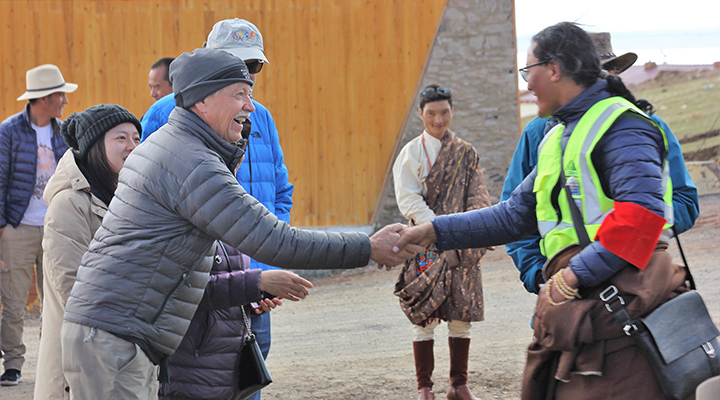
Jon Jarvis meeting Tibetan community rangers in Sanjiangyuan National Park. PHOTO: Rudy D’Alessandro, U.S. National Park Service
Chinese president Xi Jinping has called for a national park system in the country by 2030, and the UC Berkeley Institute for Parks, People, and Biodiversity is playing an integral role in the country’s progress toward that goal. Led by executive director Jon Jarvis and funded by the Paulson Institute, the group is evaluating one of China’s pilot parks, Sanjiangyuan National Park—an area of nearly 30 million acres on the Tibetan Plateau. Within the park lie the headwaters of three major rivers—the Yellow, the Yangtze, and the Mekong—that supply water to 900 million people in China and five other nations. The institute is also assisting in the development of a sustainable financial model for the national park system and training senior Chinese leaders in national parks management, with a focus on conservation and stewardship. “We have the opportunity to build a program of conservation of national parks that will foster national pride in China and will have a huge impact for the biodiversity of the nation and hopefully the planet,” said Jarvis.
Sanjiangyuan is set to become China’s first national park and will open in 2020. Jarvis appears in this recent episode of the "What Can be Saved" series by the Associated Press, which calls the park "China's Yellowstone."
